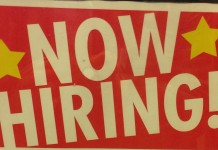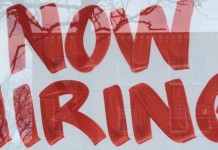Research says the average person will have 12 to 15 jobs in his or her lifetime. The statistic probably bears some investigation: Do promotions count? What if I stay in one company with a new job title?
According to the Bureau of Labor Statistics, the average tenure of U.S. workers hasn’t changed much over the years. For 2014, it was 4.6 years. Given a 45 or 50 years in the workplace, that’s about 10 careers.
But another BLS statistic shows that tenure tends to increase with age. Workers 55 to 64 averaged 10.4 years, which was more than three times that of workers 25 to 34 (3.0 years). A majority of workers 60 to 64 had been with the current employer for at least 10 years, vs. just 12 percent of the 30 to 34 year olds.
That’s led to a widespread perception that Millennials are job-hoppers. That may be true–Millennials allegedly don’t have the pay-your-dues attitude of previous generations
But I can’t help but wonder whether these insights come from Baby Boomers with short memories. I trained to be a college English teacher, but instead stumbled into a first job as a children’s book editor. That job provided my first experience in writing, and I used it to talk my way into a copy-writing job for an incentive motivation company. From there, I did marketing communication for a few years, then public relations. My fifth career (if you’ve been counting) was–hallelujah!–nine years of teaching college English. I spent one really misguided year as the executive director of a nonprofit. Then I got back into business writing, this time through internal communications. My eighth and I believe final full-time career was communication consulting, which I did for about 17 years.
From here on out, I plan to be a hyphenate: teacher hyphen freelance writer hyphen blogger. But career planning has never been my strong suit.
I haven’t made any changes as radical as engineer to acupuncturist, or engineer to master brewer. You could say I’ve only had two careers–writing and teaching. Actually, these days, I just tell people I type for a living.
My point is that while I discovered my essential strengths fairly early on–learning and communicating–I did quite a bit of job-hopping before I discovered the right way to apply them. Consulting was perfect, letting me tackle anew challenge every year or two, learn new industries and have the satisfaction of solving people’s problems, and I stuck with it for nearly two decades.
And, in the end, I sort of invented my own niche–the loneEnglish major on the IT project team. With the knowledge bank acquired in all the other jobs, I finally created The Job 4 Me.










